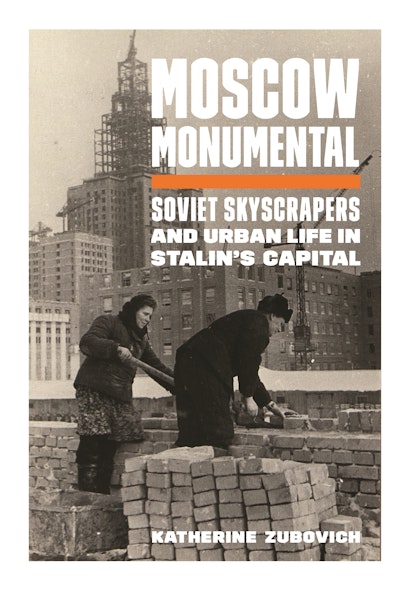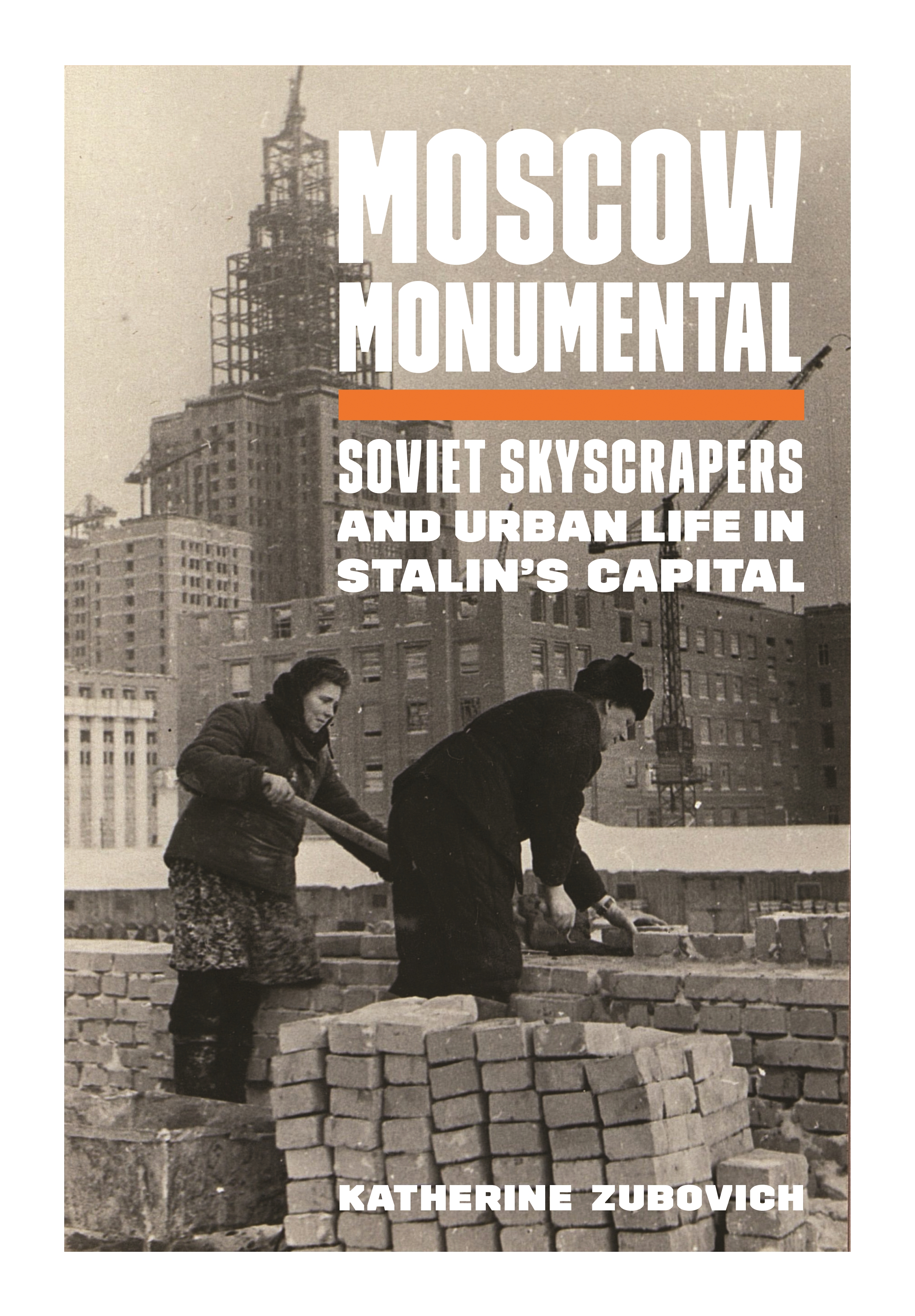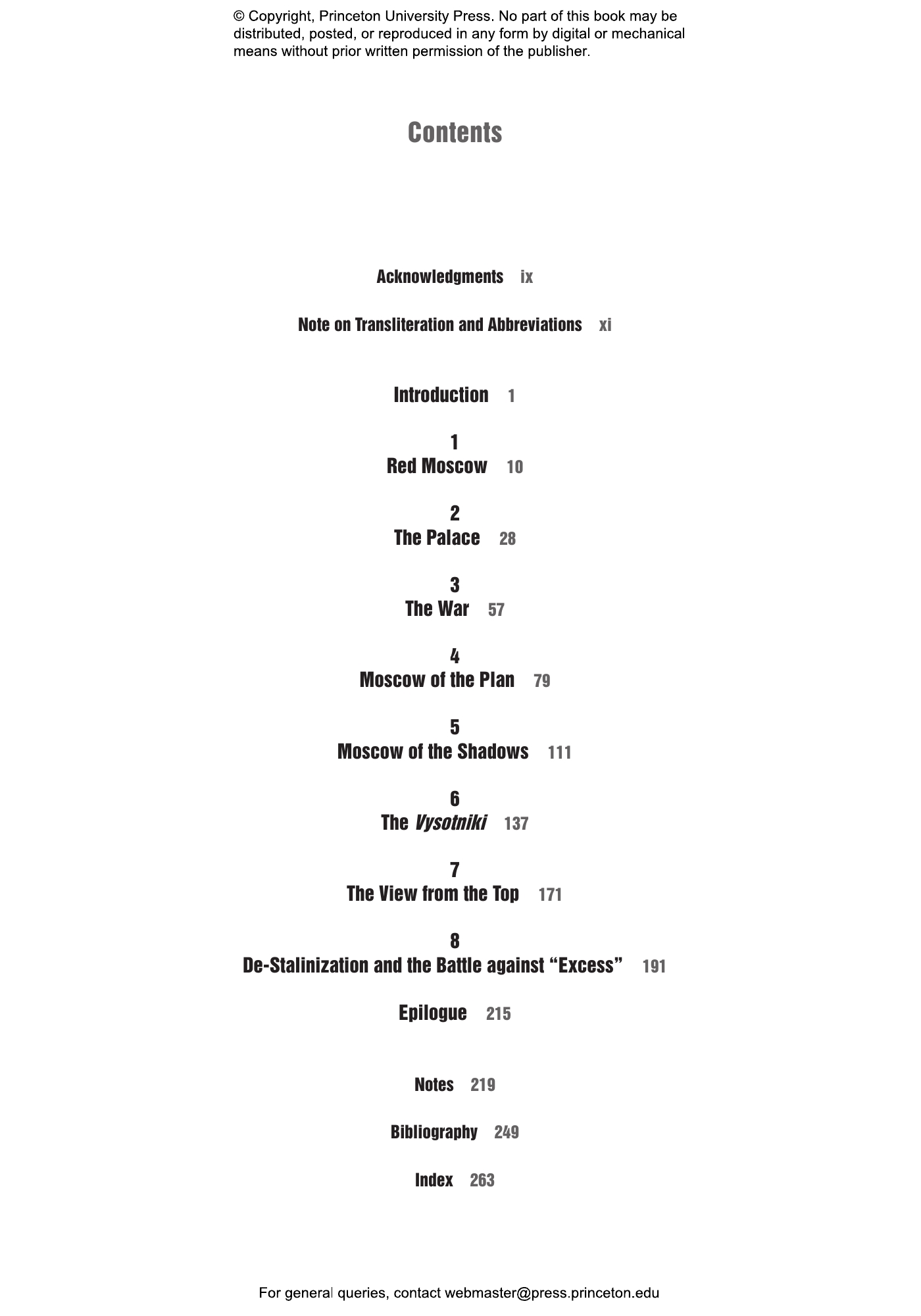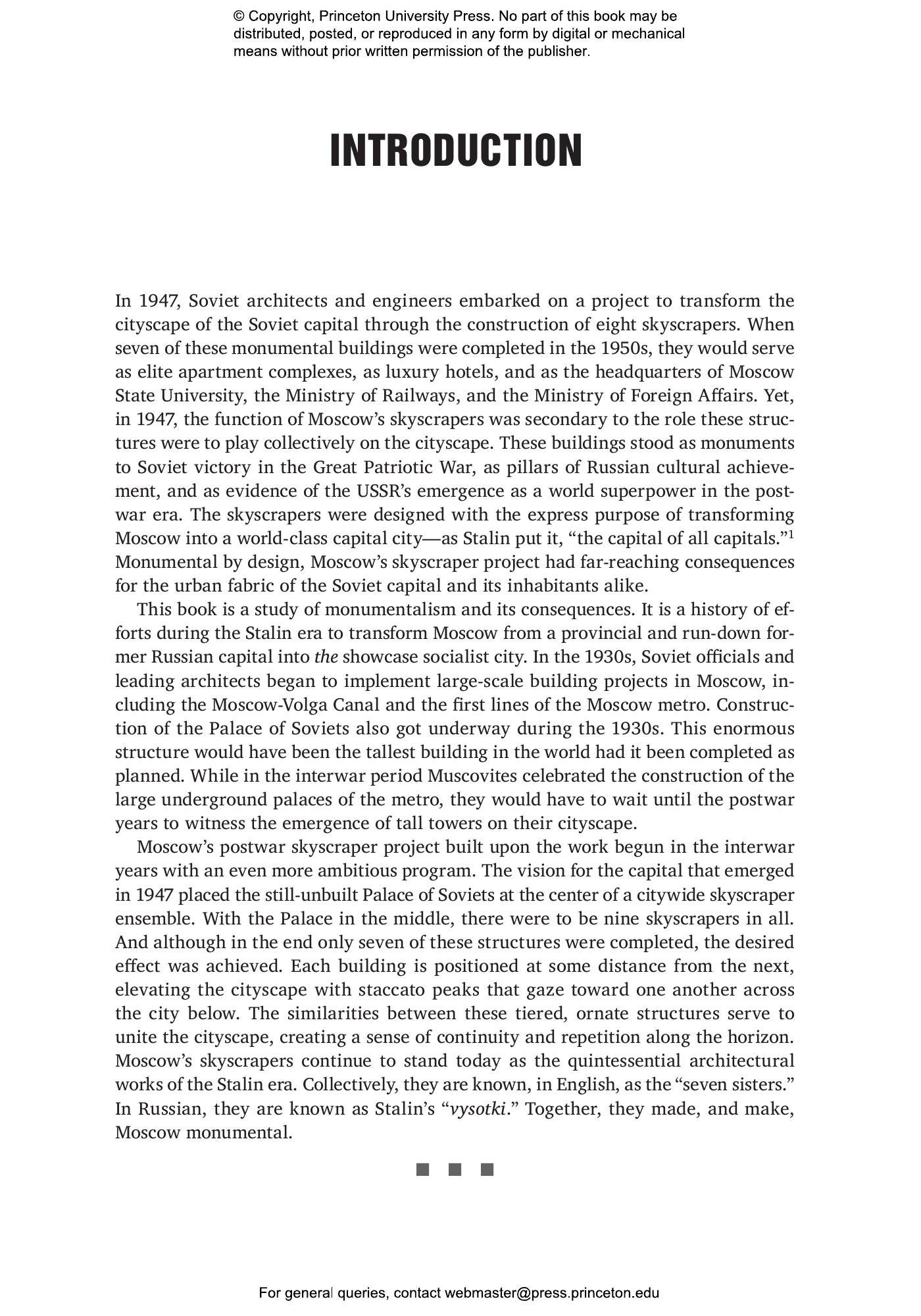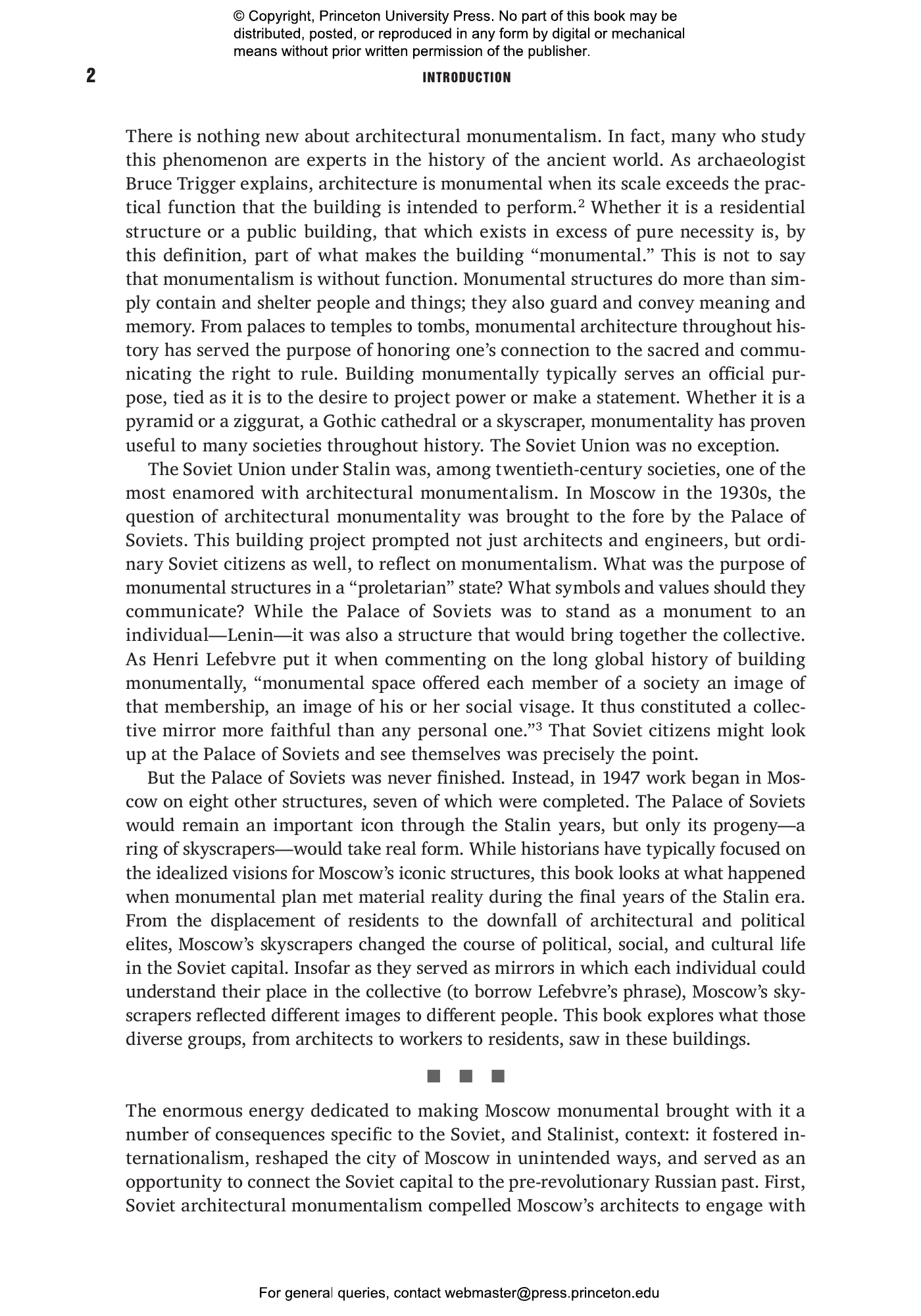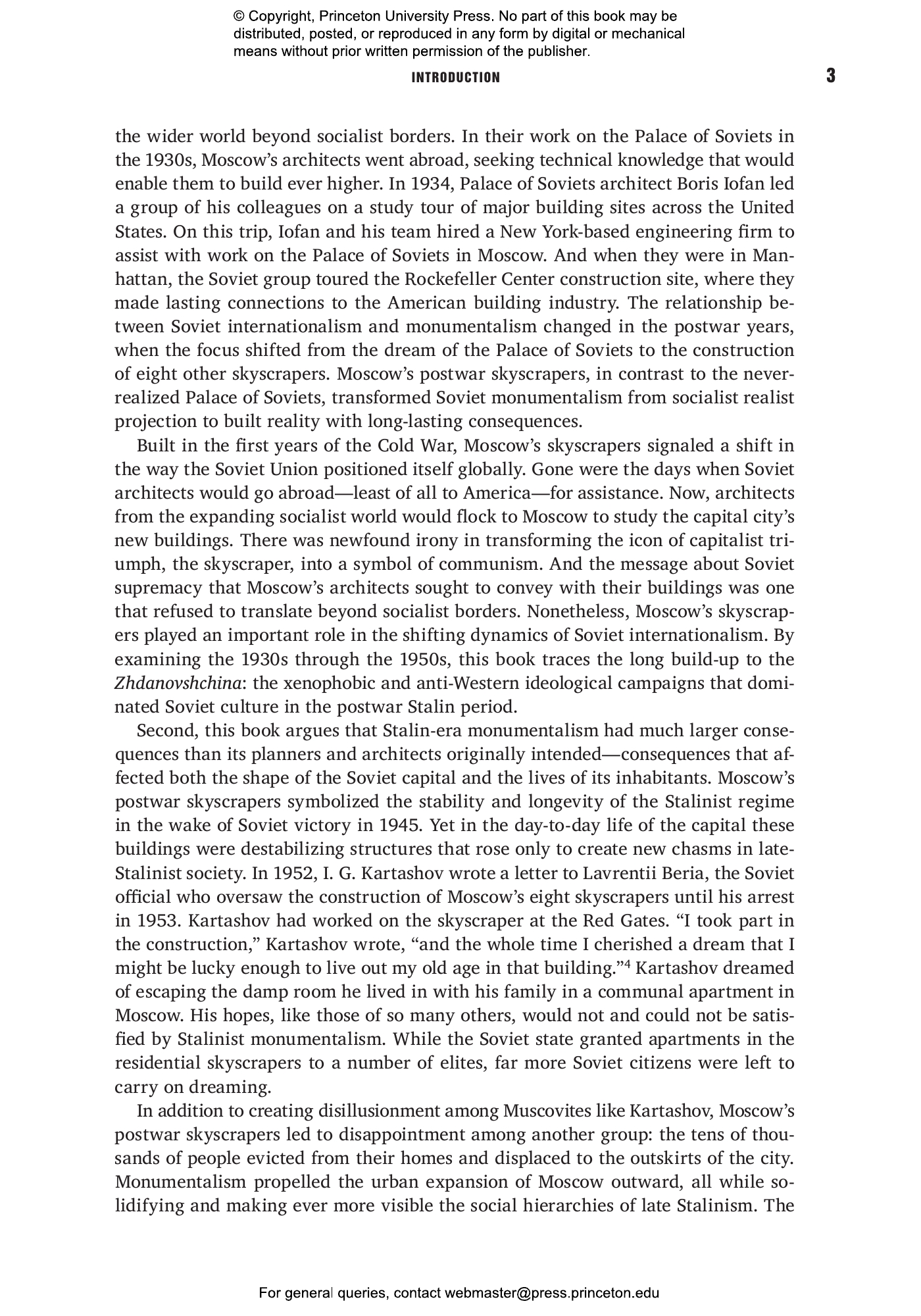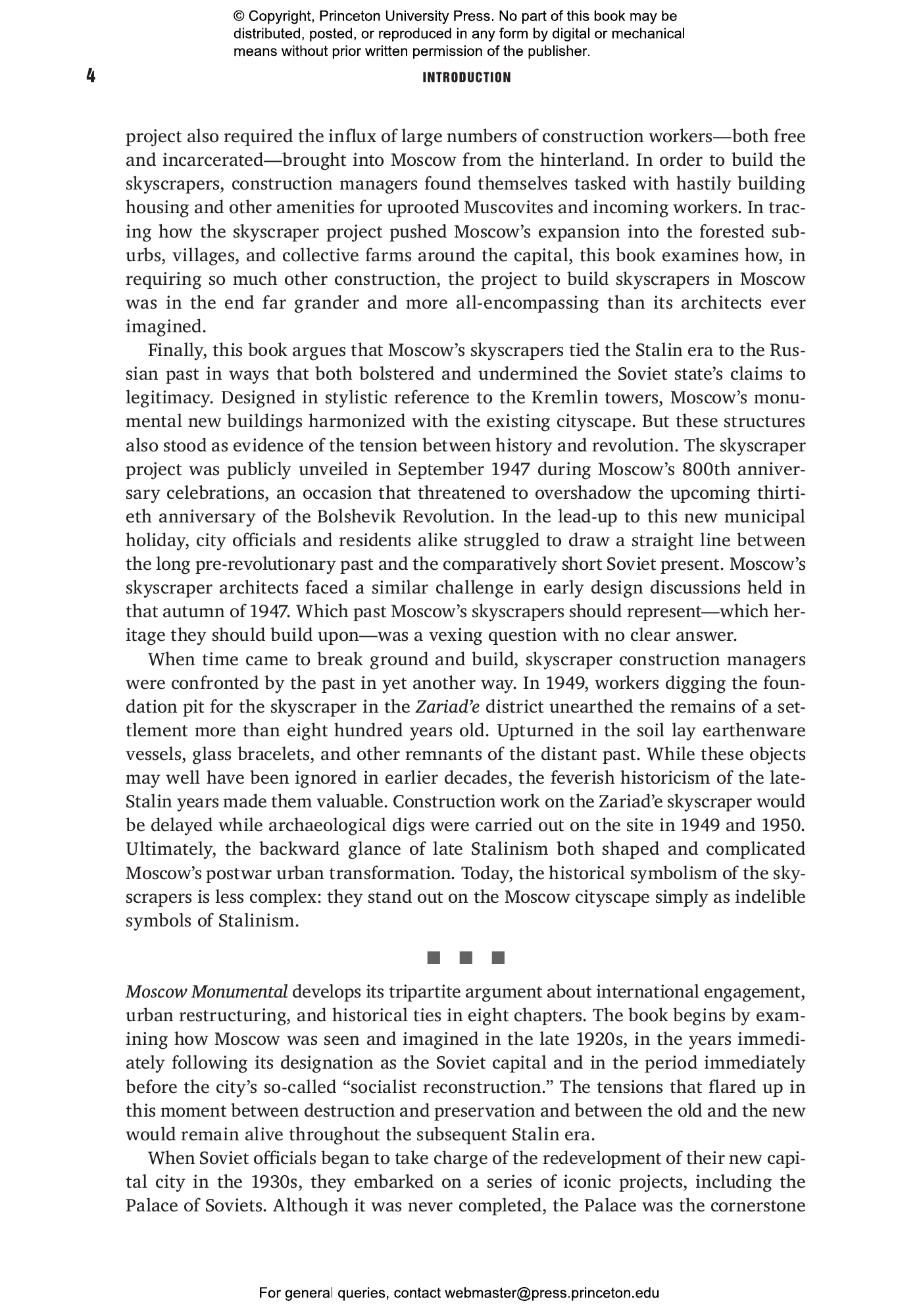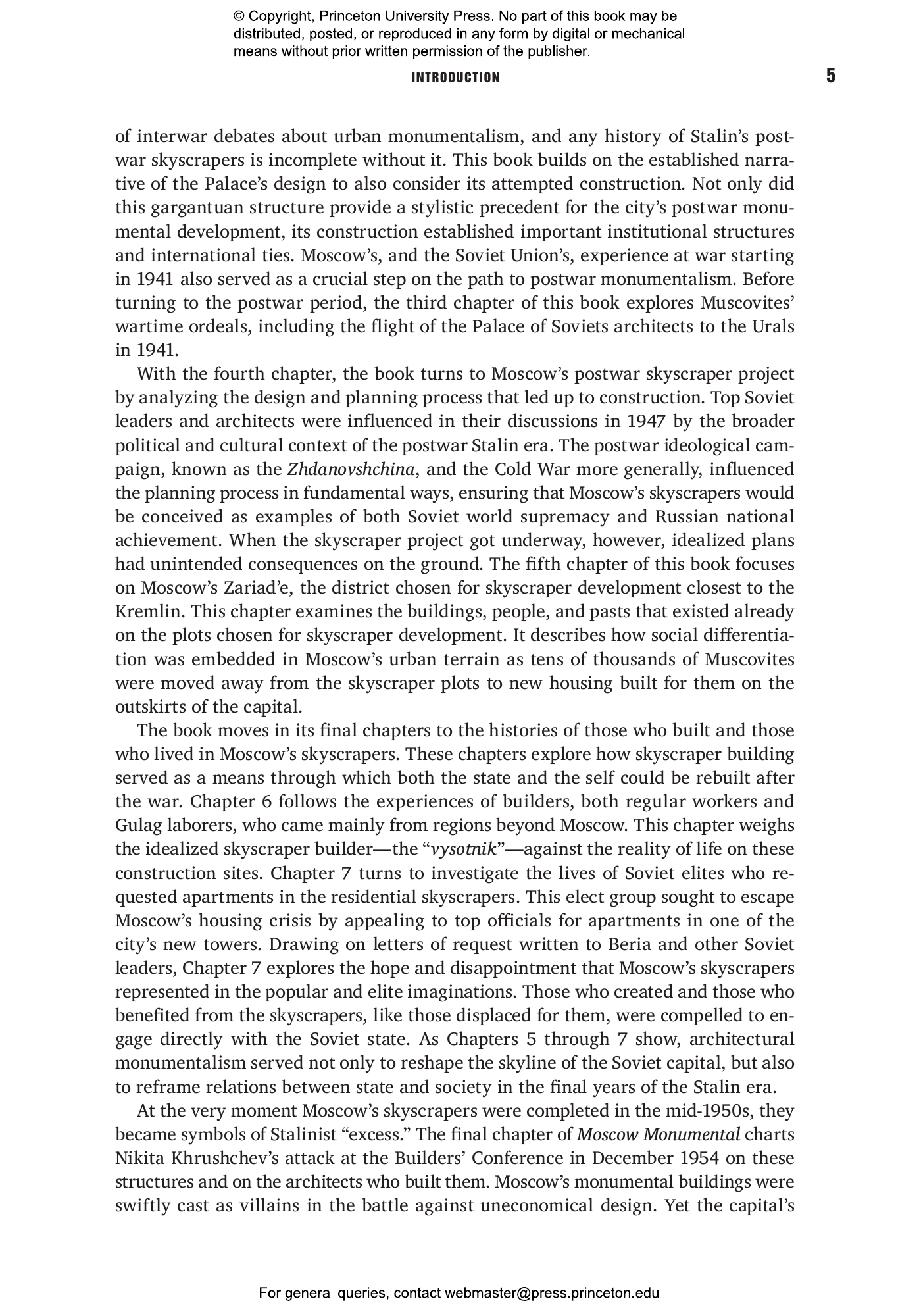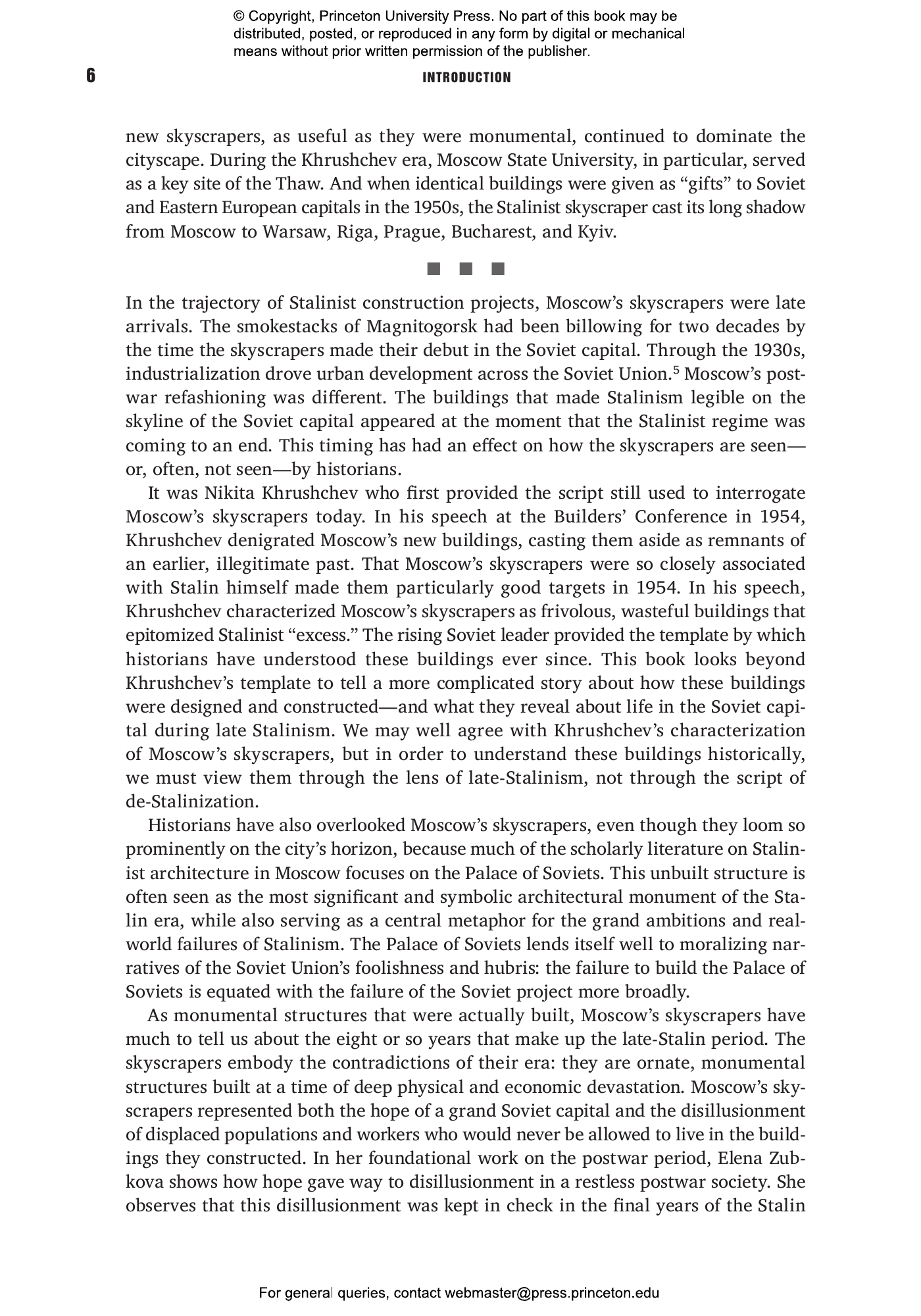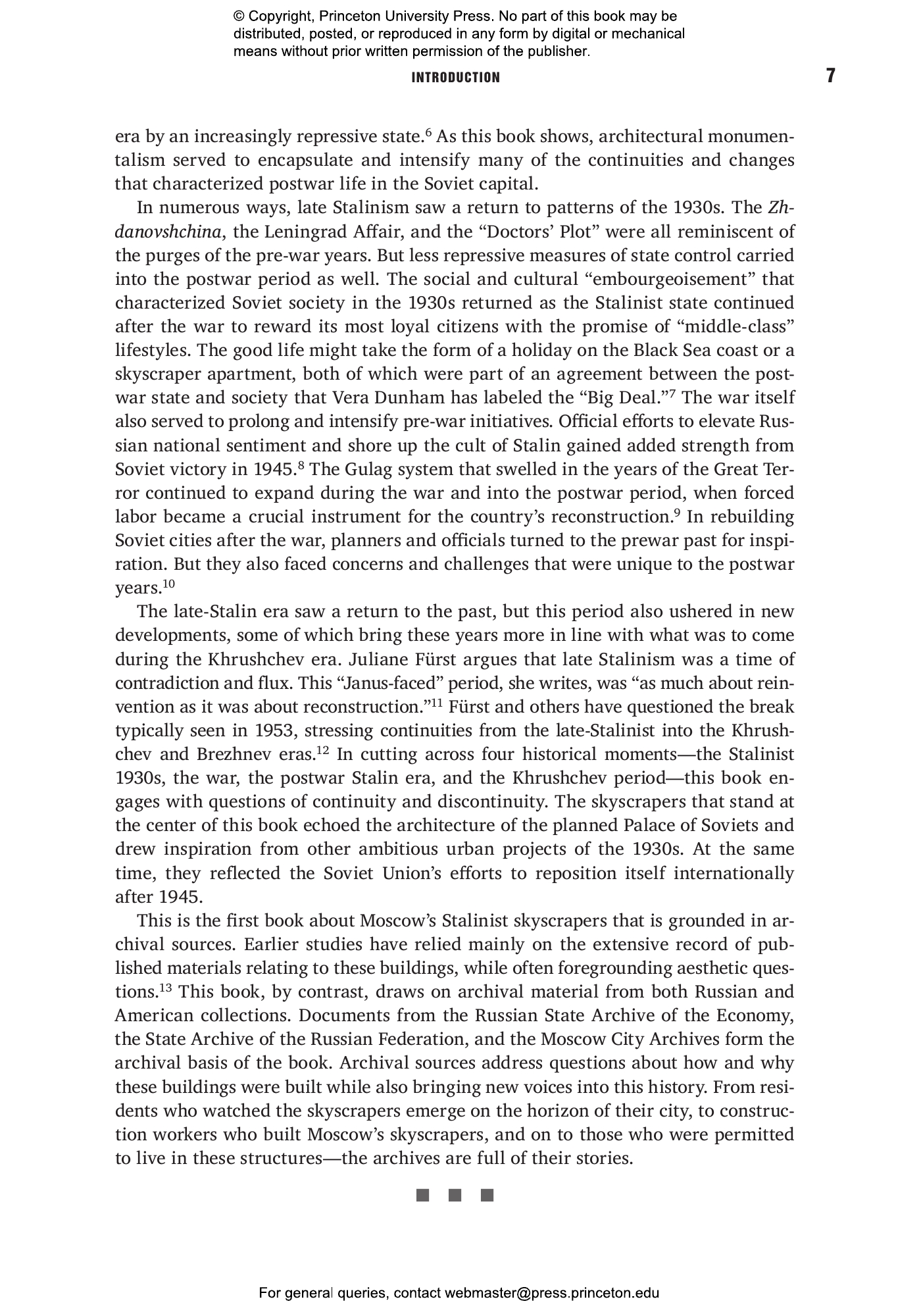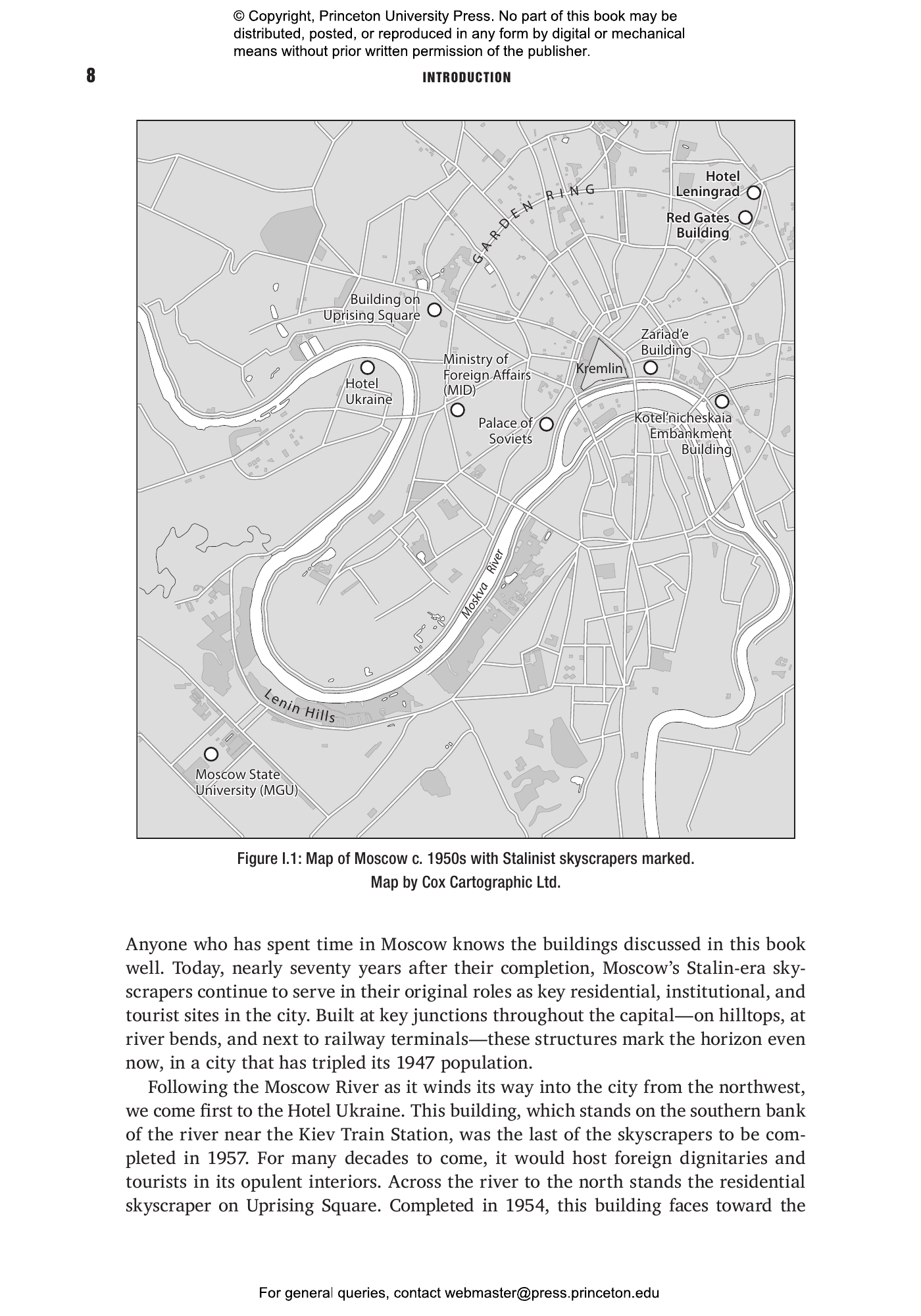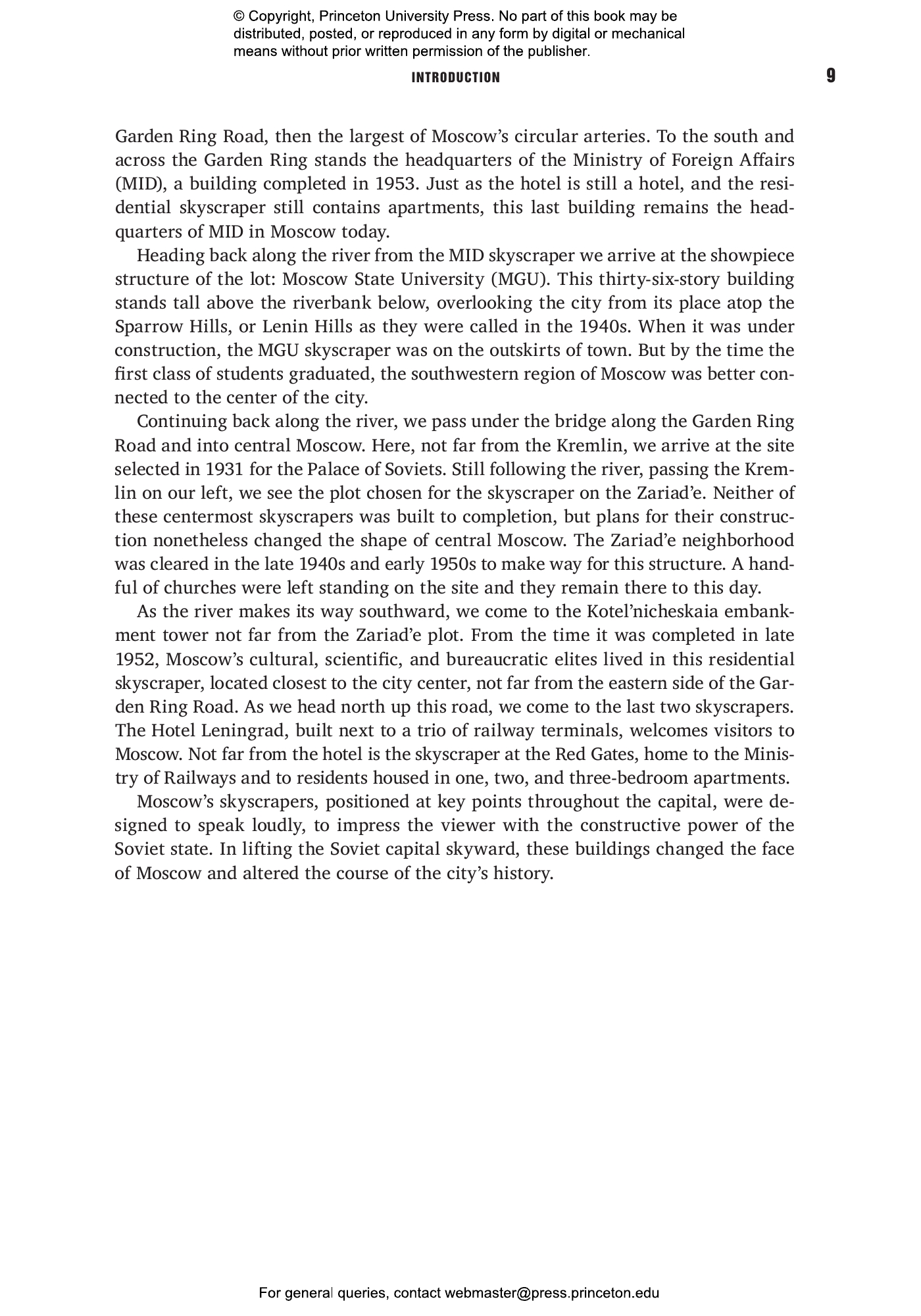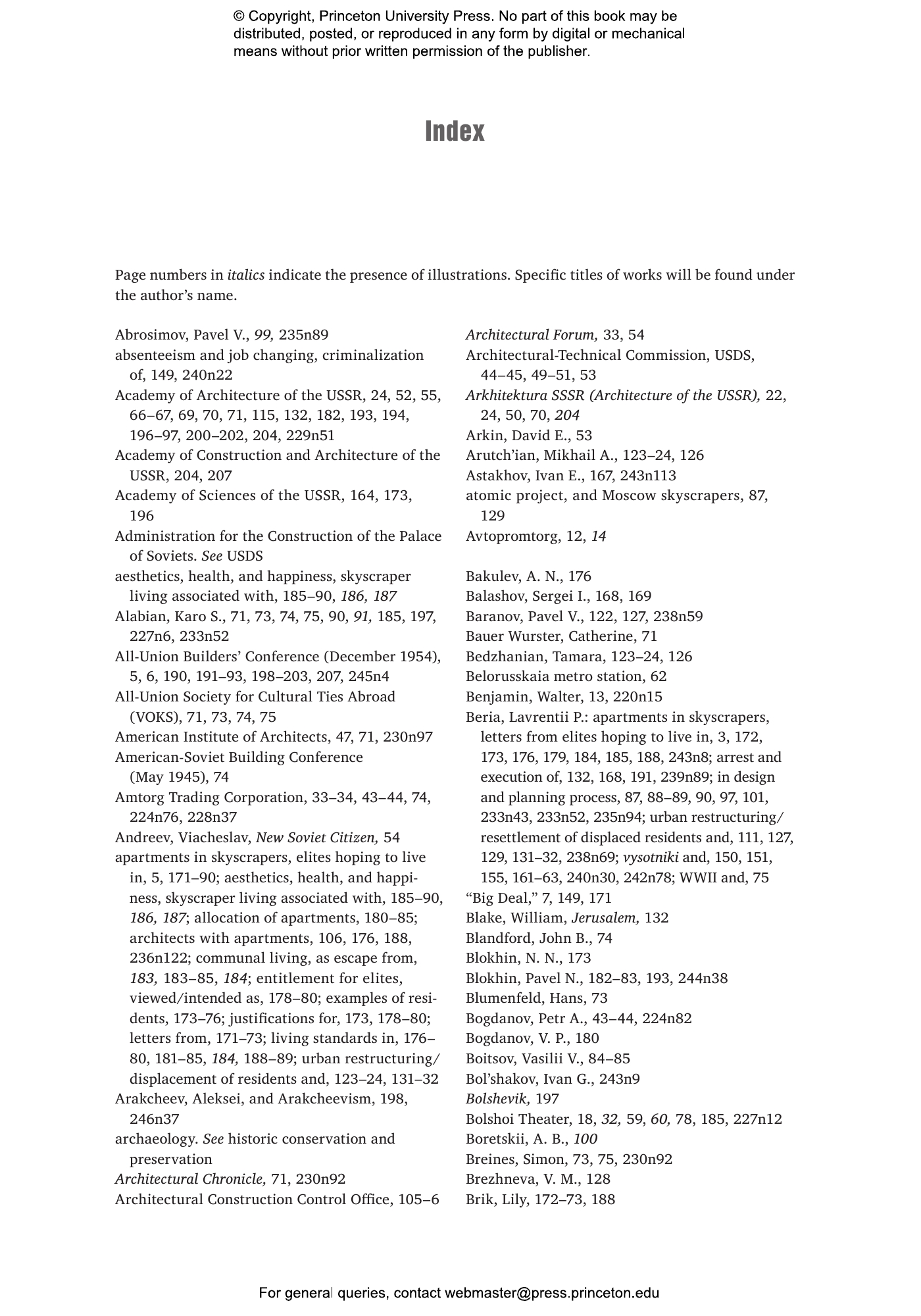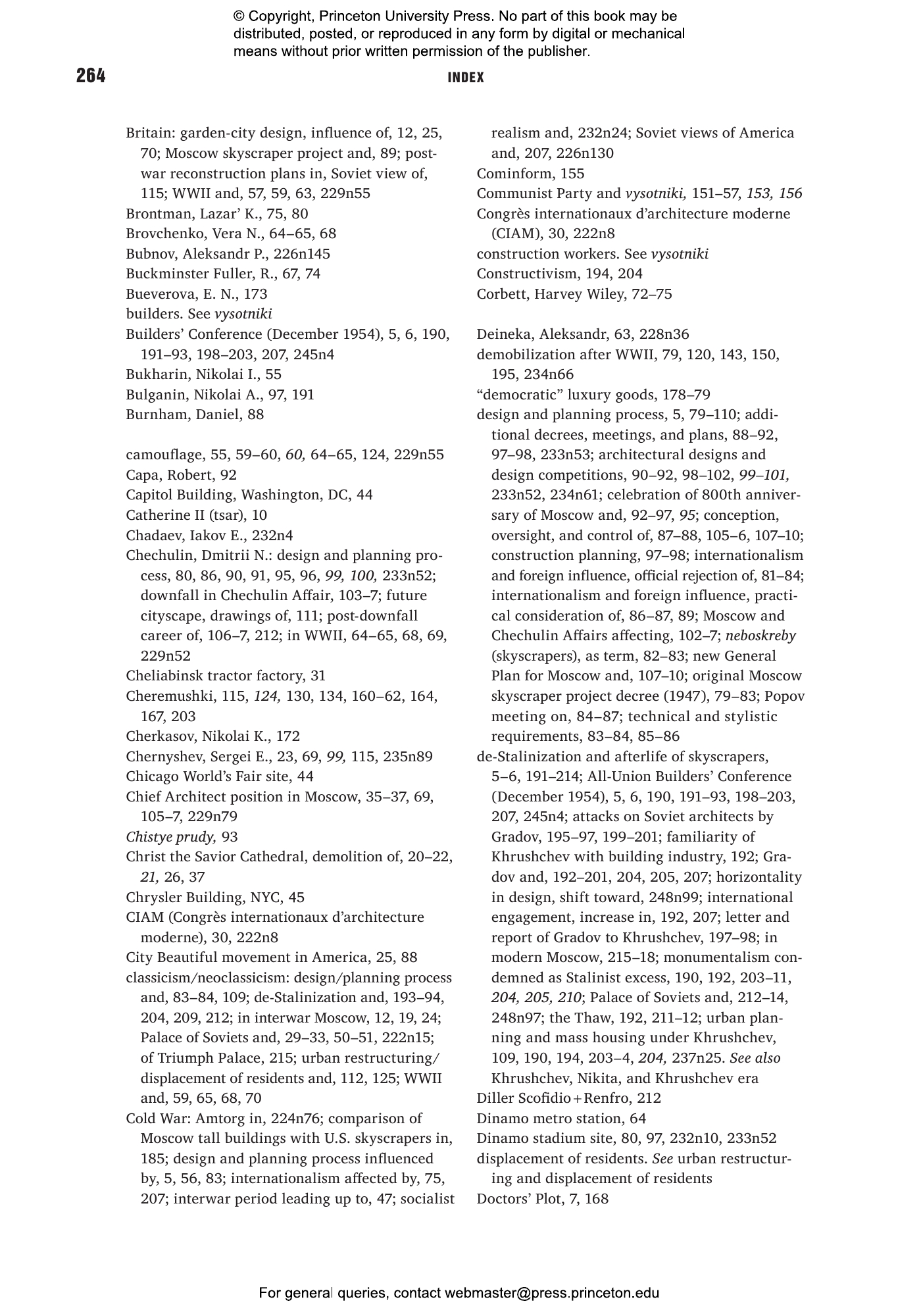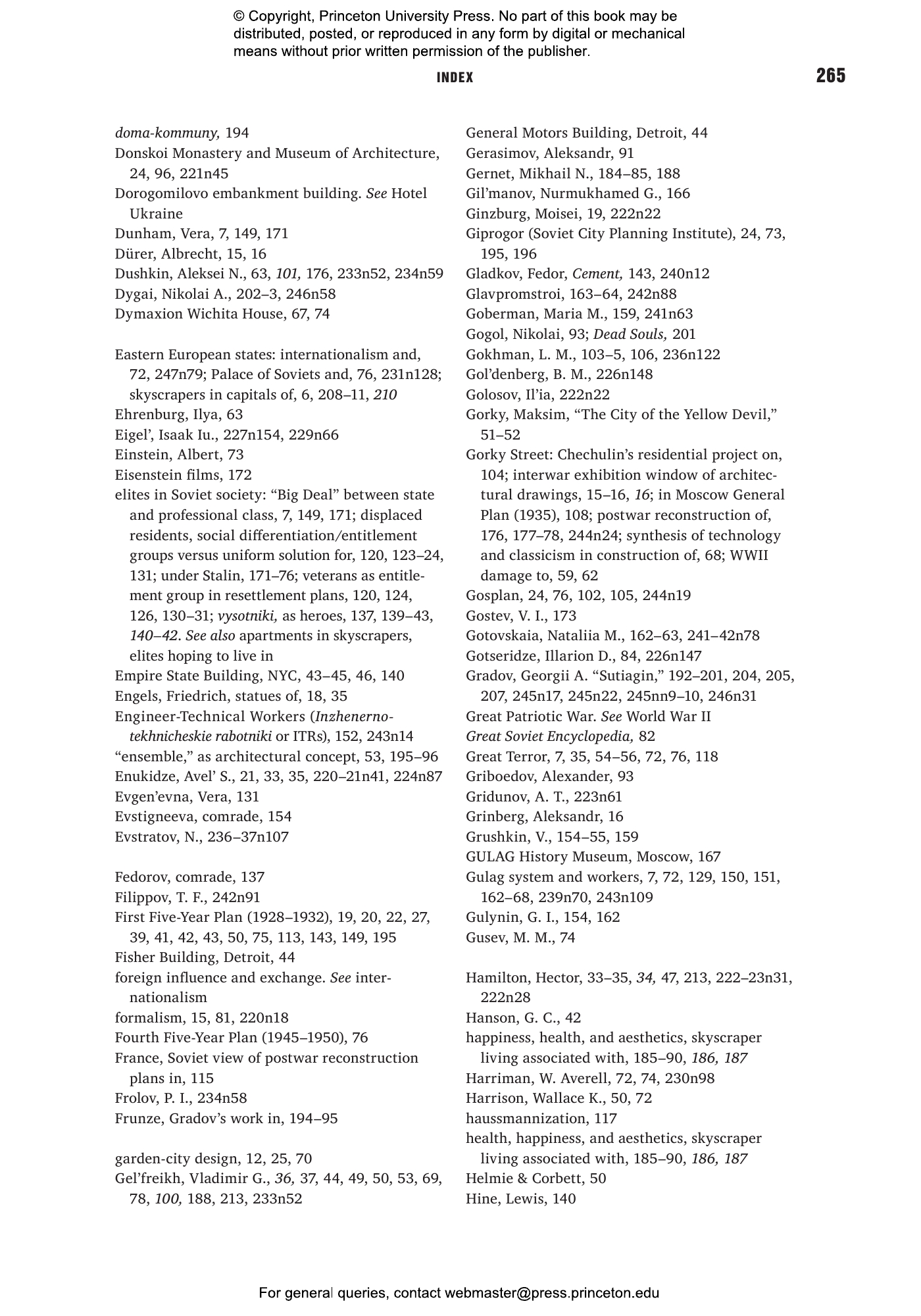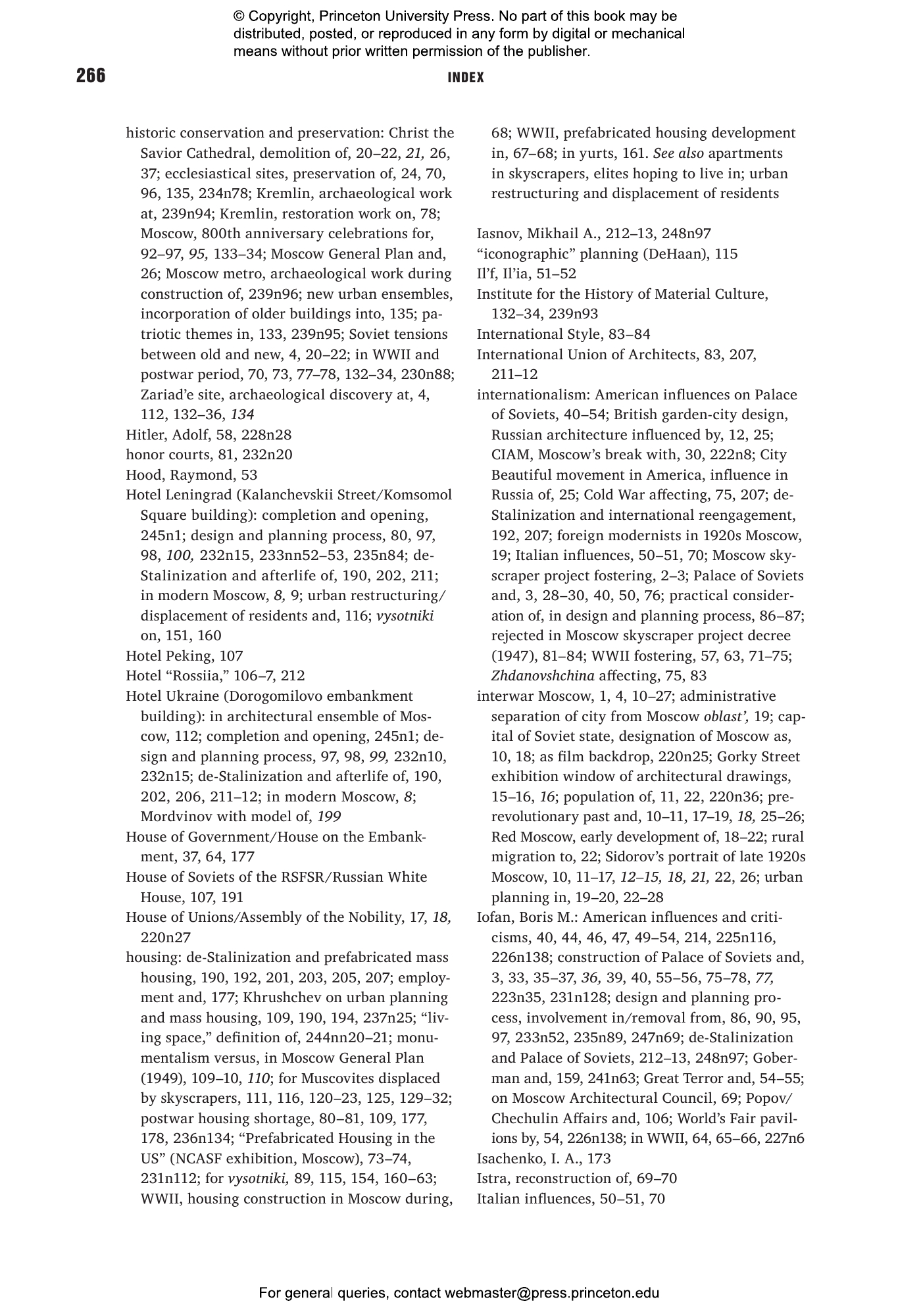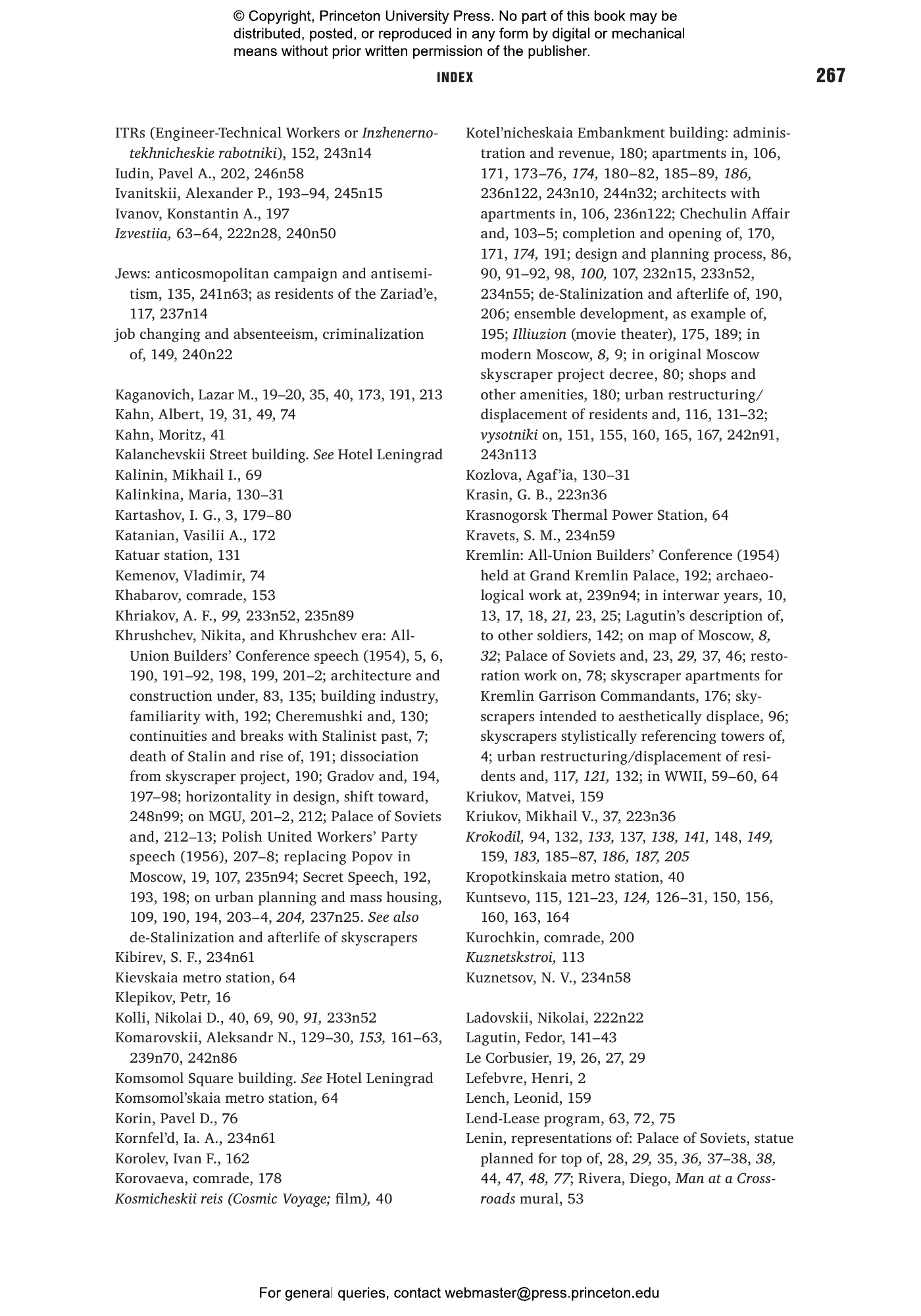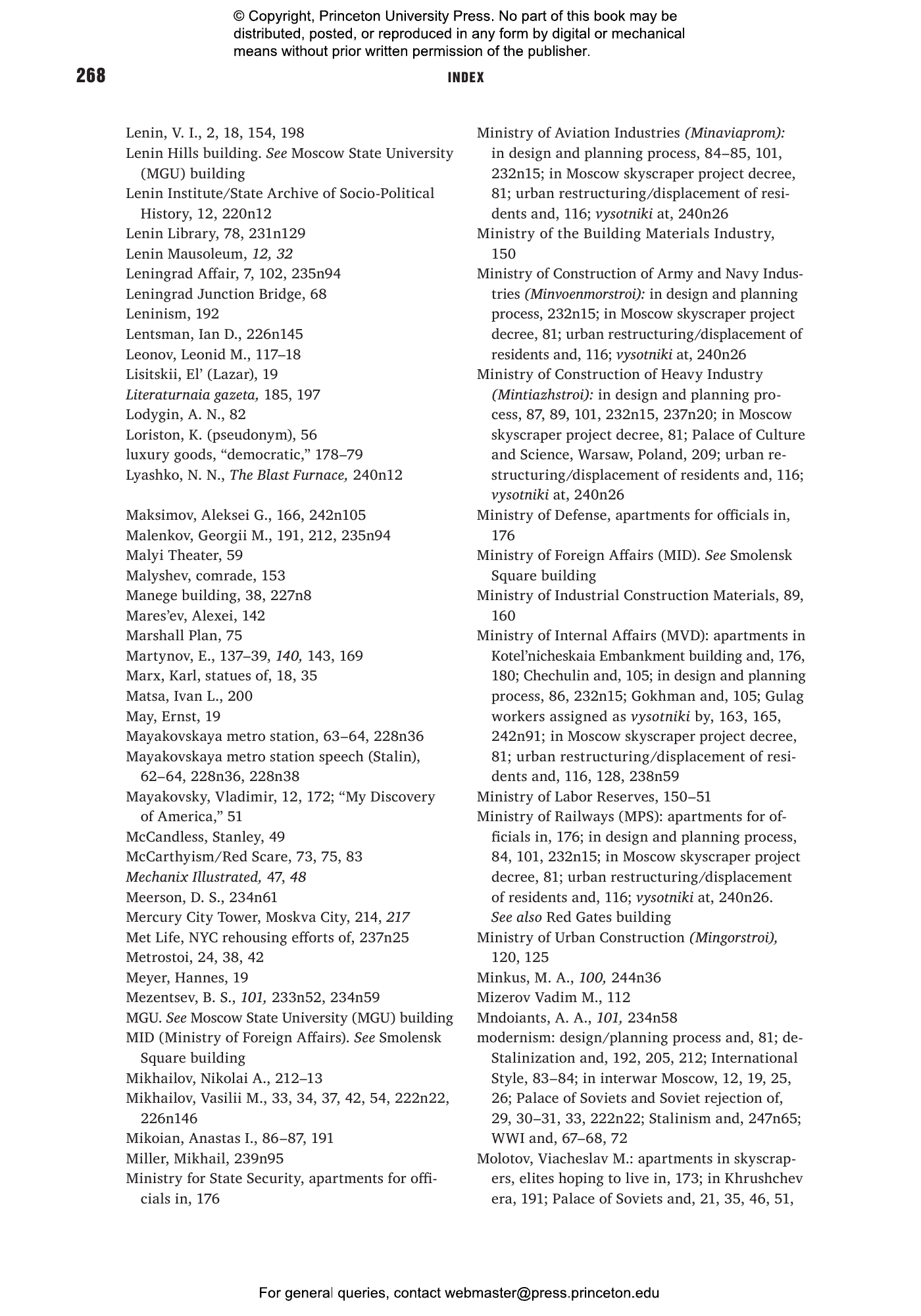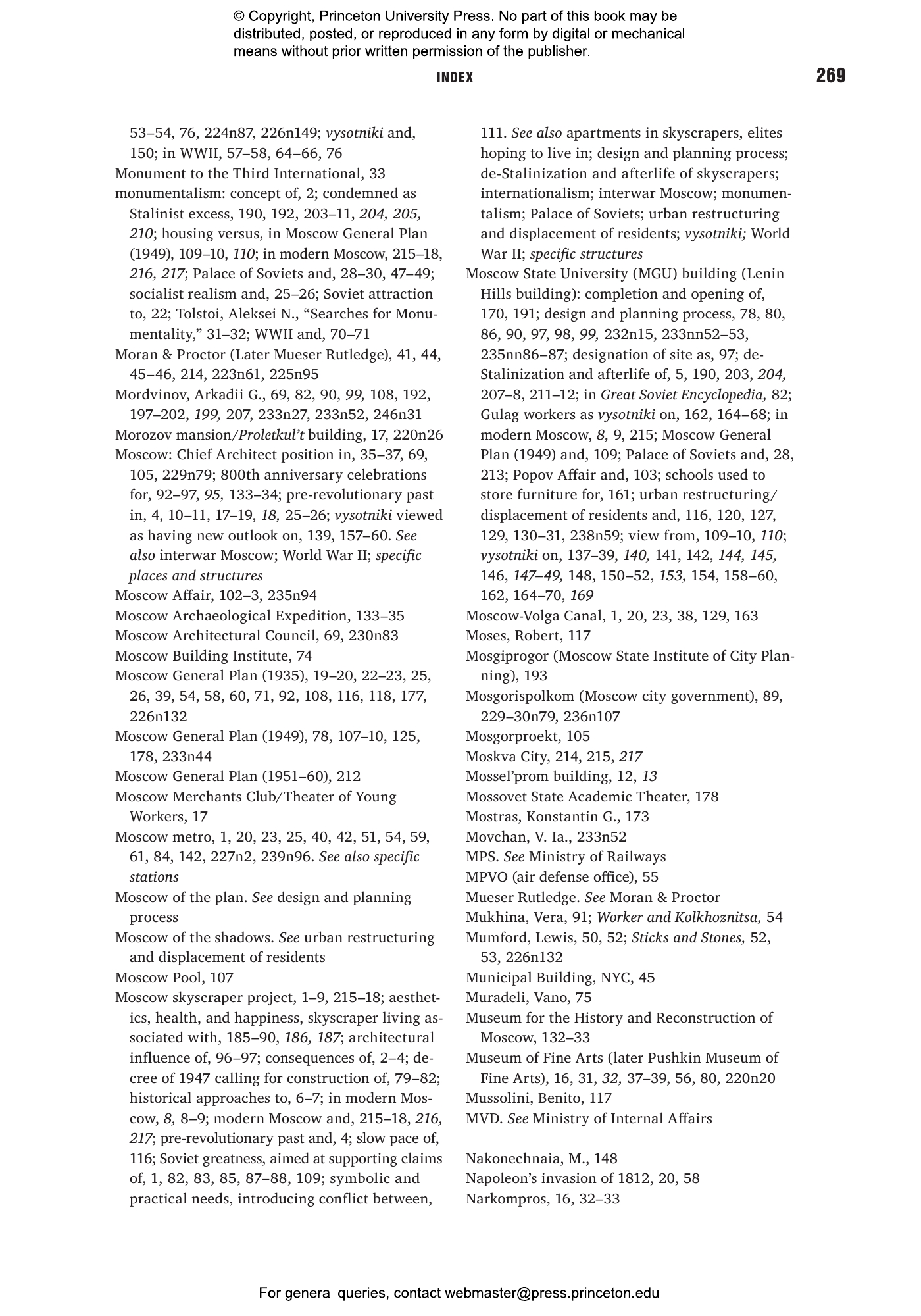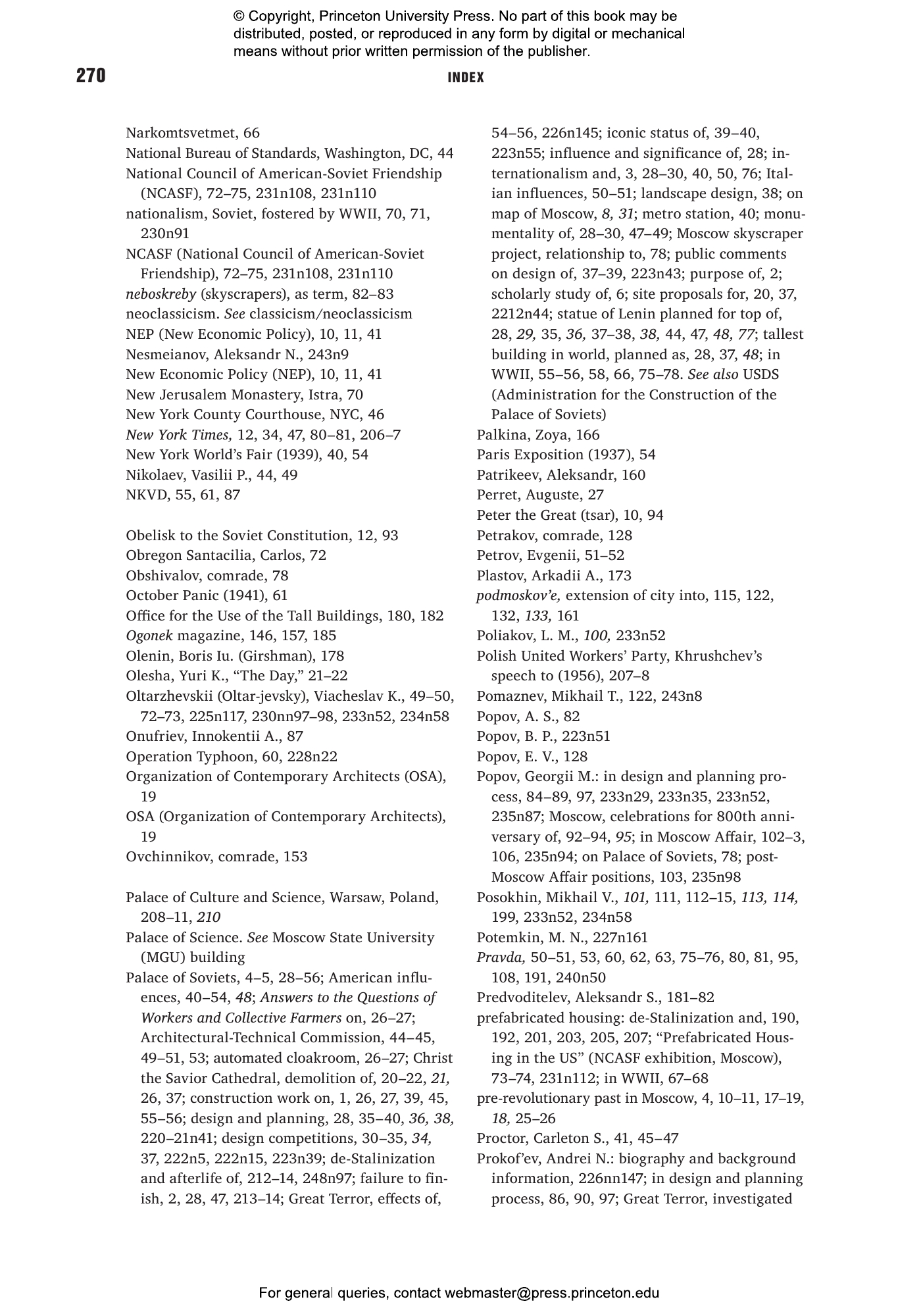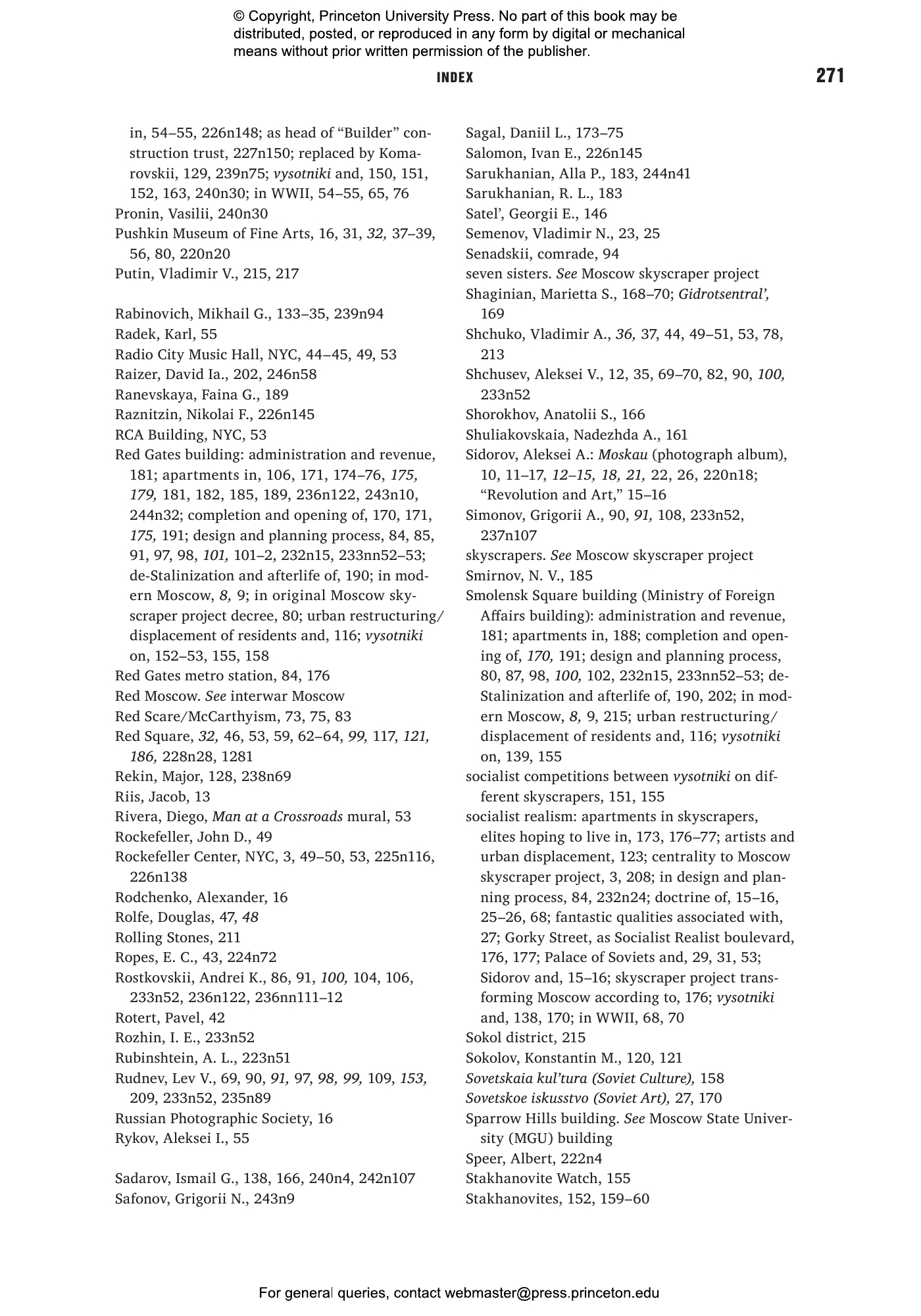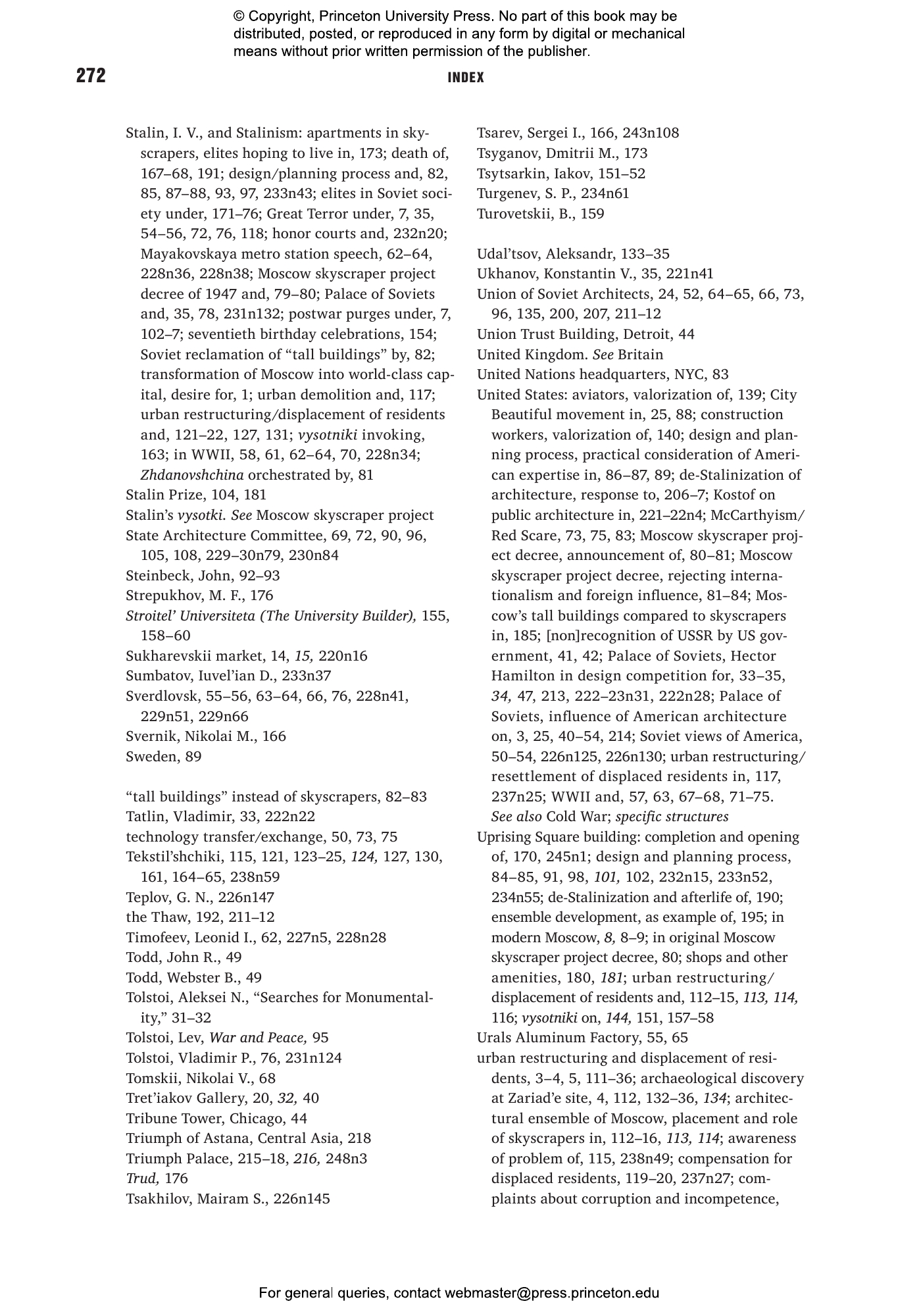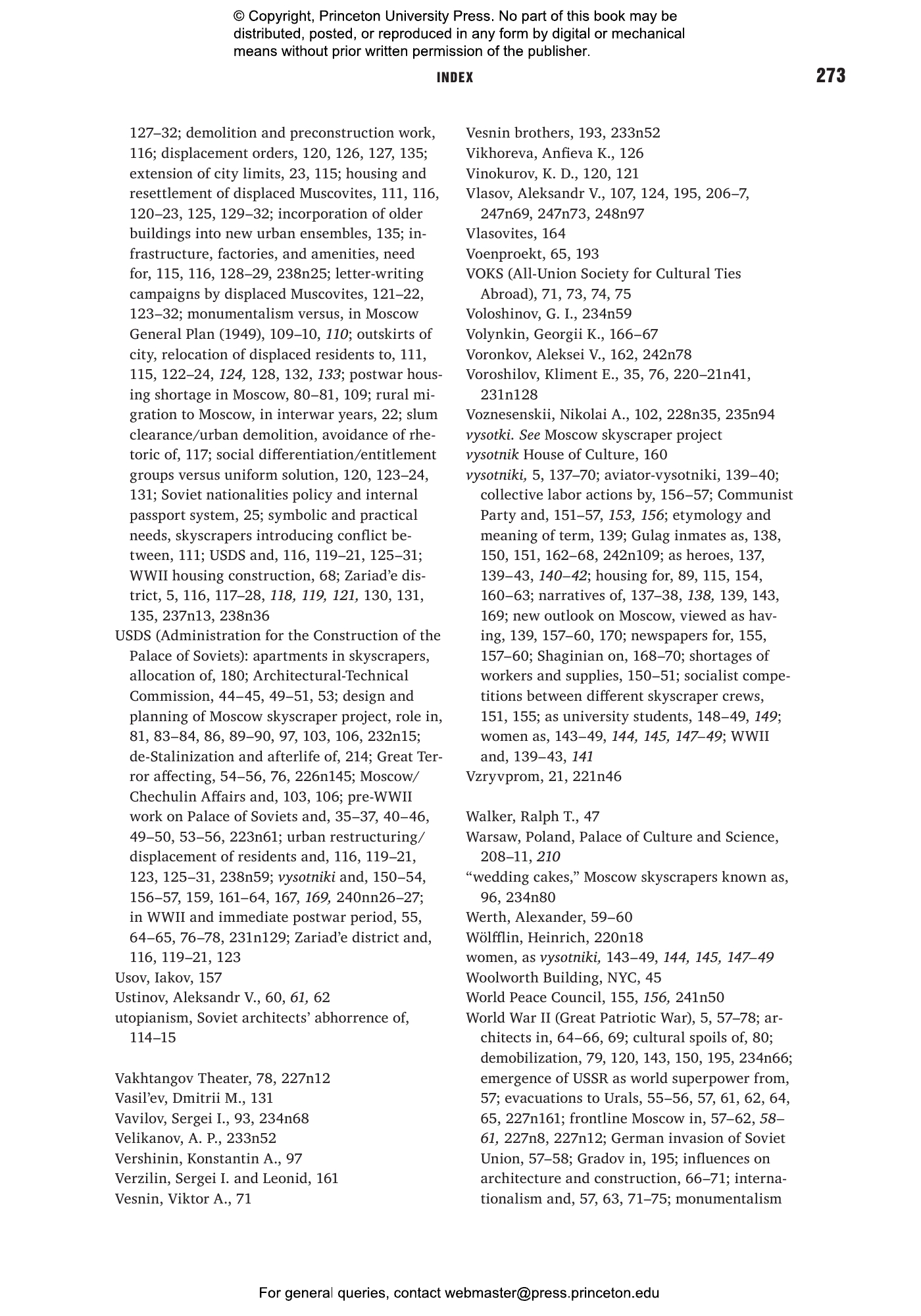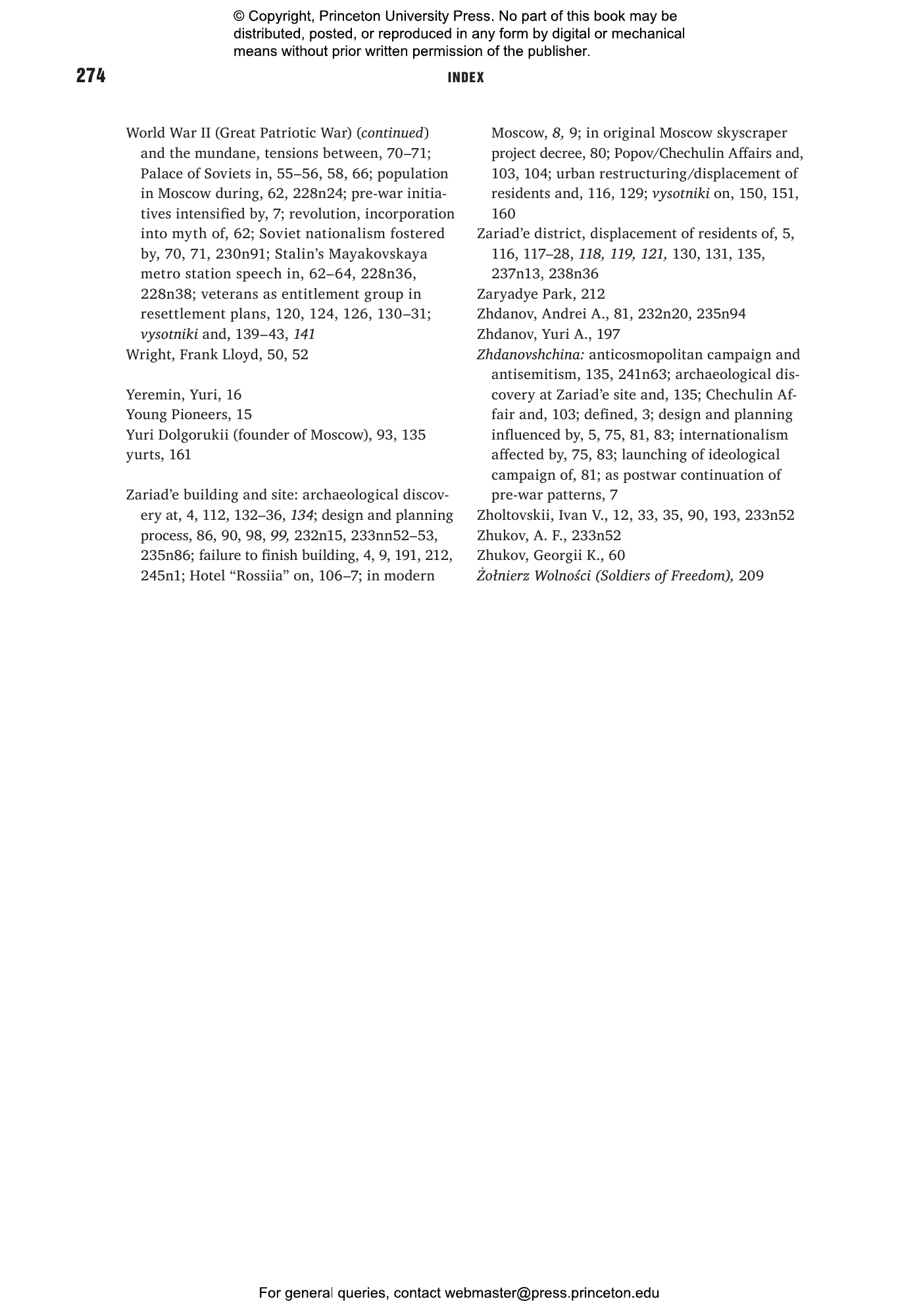In the early years of the Cold War, the skyline of Moscow was forever transformed by a citywide skyscraper building project. As the steel girders of the monumental towers went up, the centuries-old metropolis was reinvented to embody the greatness of Stalinist society. Moscow Monumental explores how the quintessential architectural works of the late Stalin era fundamentally reshaped daily life in the Soviet capital.
Drawing on a wealth of original archival research, Katherine Zubovich examines the decisions and actions of Soviet elitesâfrom top leaders to master architectsâand describes the experiences of ordinary Muscovites who found their lives uprooted by the ambitious skyscraper project. She shows how the Stalin-era quest for monumentalism was rooted in the Soviet Union’s engagement with Western trends in architecture and planning, and how the skyscrapers required the creation of a vast and complex infrastructure. As laborers flooded into the city, authorities evicted and rehoused tens of thousands of city residents living on the plots selected for development. When completed in the mid-1950s, these seven ornate neoclassical buildings served as elite apartment complexes, luxury hotels, and ministry and university headquarters.
Moscow Monumental tells a story that is both local and broadly transnational, taking readers from the streets of interwar Moscow and New York to the marble-clad halls of the bombastic postwar structures that continue to define the Russian capital today.
Awards and Recognition
- Shortlisted for the Pushkin House Russian Book Prize
- Shortlisted for the Best Book in Cultural Studies Prize, American Association of Teachers of Slavic and East European Languages
- One of Foreign Affairs' Best Books
- Honorable Mention for the Alexander Nove Prize, British Association for Slavonic and East European Studies
"Impressive detail"âAnthony Paletta, Literary Review
"Zubovich has done stellar work in the cityâs archives, uncovering a trove of letters and petitions from ordinary Soviet citizens. . . This is a book which delves into the very human tensions created by a society forced into transition, and the effects on a city undergoing a seismic political, cultural, and architectural change."âJennifer Eremeeva, The Moscow Times
"A superb, sweeping account of the realization of a magnificent group of skyscrapers. Grounded in meticulous archival research, and highly readable, it will appeal to specialists and general readers alike interested in topics as wide ranging as Soviet-US relations, architecture, intellectuals, and everyday life under Stalin."âChristine Varga-Harris, American Historical Review
"Russian and Soviet urban history has expanded and developed greatly in the last two decades by drawing attention to the built environment, lived experience, and aesthetic choices and meanings of buildings. In Katherine Zubovichâs Moscow Monumental: Soviet Skyscrapers and Urban Life in Stalinâs Capital we have an example of some of the best trends in recent years.
"âKarl Qualls, Russian Review
"Drawing on extensive archival research, the book delineates an arc from early conceptualization of Moscow as the capital of Soviet Russia to infighting leading to the demise of monumentality as a dominant force in Soviet architecture during the 1950s. ... Recommended."âChoice
"Well researched and lucidly written, Moscow Monumental is a welcome contribution to the field of urban history. It will be a good addition to the reading lists for university courses on Russian social and cultural hisÂtory. It will also be much appreciated by lovers of Russian history outside academe."âElena V. Baraban, Ab Imperio Quarterly âââââââ
"A monumental story, pun intended. . . .Readers will find this highly refreshing."âHeather D. DeHaan, Contemporary European History
"Zubovich gives us what the archives (and page limits) allow: a rich and thoughtful story of the ambition and contradiction that characterized the Soviet effort to create a lived utopia."âDiane P. Koenker, Journal of Modern History
"Moscow Monumental is a significant study of one of the most important building campaigns of the early Cold War and the impact it had on the urban life of the Soviet capital."âRichard Anderson, University of Edinburgh
"Zubovich offers unrivaled insight into how Stalin's skyscrapers have shaped Soviet memory and identity while shedding new light on the era in which they were bornâone where global monumentalism brought us Rockefeller Center and the Golden Gate Bridge. Engagingly written and well documented in photographs, Moscow Monumental is a must-read for urban historians and all scholars of the Soviet era."âHeather D. DeHaan, author of Stalinist City Planning: Professionals, Performance, and Power
"Moscow Monumental is a richly researched and expertly crafted book that casts the Stalin era in a new light. Zubovich has written the first history of Moscow's skyscrapers, greatly enhancing our understanding of these monumental buildings and their role in Soviet history."âSteven E. Harris, author of Communism on Tomorrow Street: Mass Housing and Everyday Life after Stalin
"This elegantly written, highly readable, and intellectually engaging work offers a deeper understanding of the multifaceted nature of Stalinism and the legacy of these distinctive Stalinist skyscrapers. Historians and students of every stripe will benefit from Zubovich's exhaustive research and balanced analysis."âCynthia A. Ruder, author of Building Stalinism: The Moscow Canal and the Creation of Soviet Space
"Moscow Monumental shows how the design, construction, and representation of Stalinist skyscrapers reshaped the urbanism of postwar Moscow. By tracing professional and personal trajectories of Soviet architects, politicians, and elite occupants, but also construction workers, displaced inhabitants, forced laborers, and archaeologists, Katherine Zubovich offers a fascinating view of Moscow from above and from the shadows of the vysotki."âÅukasz Stanek, author of Architecture in Global Socialism: Eastern Europe, West Africa, and the Middle East in the Cold War
